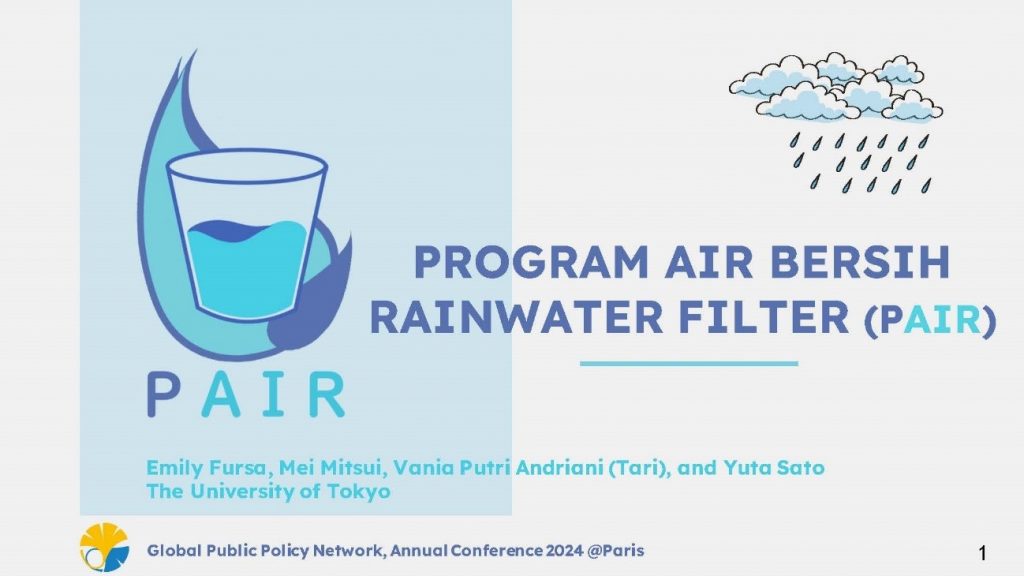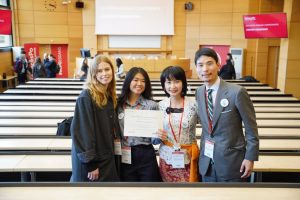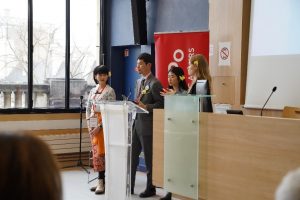Program Air Bersih Rainwater Filter (PAIR): Rainwater Harvesting as a Solution to Protect Kampung Luar Batang Villagers in North Jakarta
By Emily Fursa, Mei Mitsui, Vania Putri Andriani (Tari), Yuta Sato
Jakarta is experiencing significant land subsidence due to several key factors: climate change, unregulated groundwater use, and high rates of urbanisation. The city is also vulnerable to extreme rainfall, sea level rise and flooding, which has been exacerbated by climate change. As a consequence, water accessibility has become a pressing issue in Jakarta. But the government’s piped water supply covers only 65 percent of the Jakarta population and approximately 47 percent of Indonesians still use groundwater instead of the government’s piped water supply — indicating that there is a dire need for a solution that provides clean water access. To address this issue, we propose the installation of an underground rainwater harvesting (RH) system in Kampung Luar Batang, RT15/RW1, at SD Negeri Penjaringan 01—a government-owned elementary school in North Jakarta. We propose to partner with Totetsu MFG. Co., LTD, a manufacturer of UNIDO-backed RH technology. We hope this pilot project will provide an efficient and durable solution to North Jakarta’s water accessibility issues.
We propose a Government Taskforce to implement and monitor the project, conduct monthly check-ins for community feedback, and provide RH system maintenance awareness and training courses to the local community. Strong community links and feedback are integral to project success, and so we suggest regular consultations with the RT15/RW1 community leader to voice community needs. We further suggest the implementation of a standardised RH permit to ensure RH system integrity. If initial measures prove unsuccessful, we propose the introduction of a community remuneration scheme: for every 1000 litres of water harvested, each household receives IDR 7000 (US$0.45), promoting use and easing financial hardship. Additionally, we suggest the introduction of a mobile application and website to track maintenance issues and feedback in real-time. If successful, we aspire to expand the pilot project to other districts in North Jakarta.
- ©Lucile Meunier
- ©Lucile Meunier




